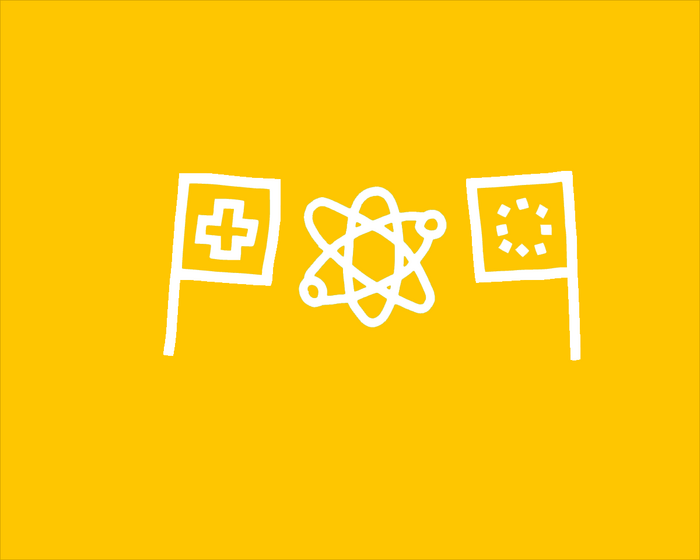A great success: 4 Swiss Higher Education Institutions in Erasmus+ “European Universities”
The European Universities initiative is a unique opportunity for the participating Swiss institutions to strengthen and build new relationships with European partners at a very strategic level and in all of their missions: education, research, innovation and service to society. This is of crucial importance for the Swiss higher education sector, especially since the anticipated rapprochement between Switzerland and the European Union in thematic dossiers such as research and education did not take place at the end of June this year and is not in sight.
4 European Universities alliances with Swiss engagement
European Universities are possible at different levels and in different thematic areas. The projects with Swiss participation reflect this breadth. The following alliances with links to Swiss Higher Education Institutions were selected for Erasmus+ funding. The Swiss participation:
Una Europa – with the University of Zurich (UZH)
Una Europa expands the network, activities and ambitions of the pilot project 1EUROPA 2019-2022. Eleven renowned research universities are involved in the alliance. In six focus areas (Cultural Heritage, Data Science and AI, European Studies, One Health, Sustainability and Material Design & Engineering), further joint learning opportunities including degrees are to be established and the mobility of students and staff further increased.
CIVIS – with the University of Lausanne (UNIL)
CIVIS2 is – like UNA Europa and EPICUR – one of the largest alliances and aims to strengthen the competitiveness of the European Higher Education Area and ensure access to higher education for a larger number of students and staff. The joint long-term strategy focuses on sustainably increasing mobility, pooling resources and strengthening cooperation through common education and research agendas.
4EU+ – with the University of Geneva (UNIGE)
4EU+ is constituted by seven leading, comprehensive and research-intensive universities across Europe, organised as an association since 2021 to realise its vision of a truly European university. The 1CORE project, building on the achievements of the past years and structured around the 4EU+ flagships (Urban health and demographic change, Europeanness, Digitalisation - modelling - transformation and Environmental transitions), will expand the Alliance's common educational offer, develop innovative pedagogies, move towards seamless mobility, deploy new solutions for the common campus and implement new actions to engage society.
EPICUR – with the University of Basel (UNIBAS) participating through EUCOR
The EPICUR project brings together nine EU higher education institutions to deepen and expand the systematic and long-term institutional cooperation from the 2019-2022 pilot project. In teaching, a joint range of courses on socially relevant topics is to be established and innovative teaching formats suitable for inter-university studies are to be developed. In addition, joint structural elements are to be created that will sustainably increase the joint educational offer and expand the content. Another important goal is to increase student mobility at Bachelor's, Master's and doctoral level. The UNIBAS will engage in this alliance as a member of the EUCOR network.
The projects will start between October and December 2022 and run for 4 years.
Context
In total, Movetia received six applications for Swiss funding. In addition, several Swiss Higher Education Institutions submitted declarations of interest to demonstrate that they are working towards an engagement in the 2023 or 2024 calls.
The European Universities initiative is a flagship initiative of the European Union (EU) launched in 2017. It is funded through Erasmus+. In 2022, 52 applications were submitted at EU level, of those, 44 were funded.
The aim of the initiative is to increase the global competitiveness of the European Higher Education Areas (EHEA) and to strengthen its links to the European Research Area (ERA). The alliances funded by Erasmus+ act as testbeds for reforming the EHEA and for further developing the Bologna process, e.g. by increasing the numbers of joint educational offers and numbers of student mobility.
Swiss institutions were not able to participate in the pilot rounds 2019 and 2020 because Switzerland is not associated to Erasmus+. In 2022, however, the initiative was opened up to Higher Education Institutions from all countries that are members of the EHEA, including Switzerland. The Swiss government allocated CHF 6 million in December 2021 in order to support the participation of Swiss institutions in the initiative in 2022. The aim of this investment is to strengthen the structural collaboration of Swiss institutions with European partners as well as to contribute to the further development of the EHEA and the ERA.
Next steps
At the European level, the 2023 call will mainly provide follow-up funding for the growth of the pilot alliances selected in 2020. However, there will also be funding for a small number of new alliances. In 2024, the European Commission will then fund mainly new alliances, in view of reaching the set goal of having 60 European Universities by mid-2024.
